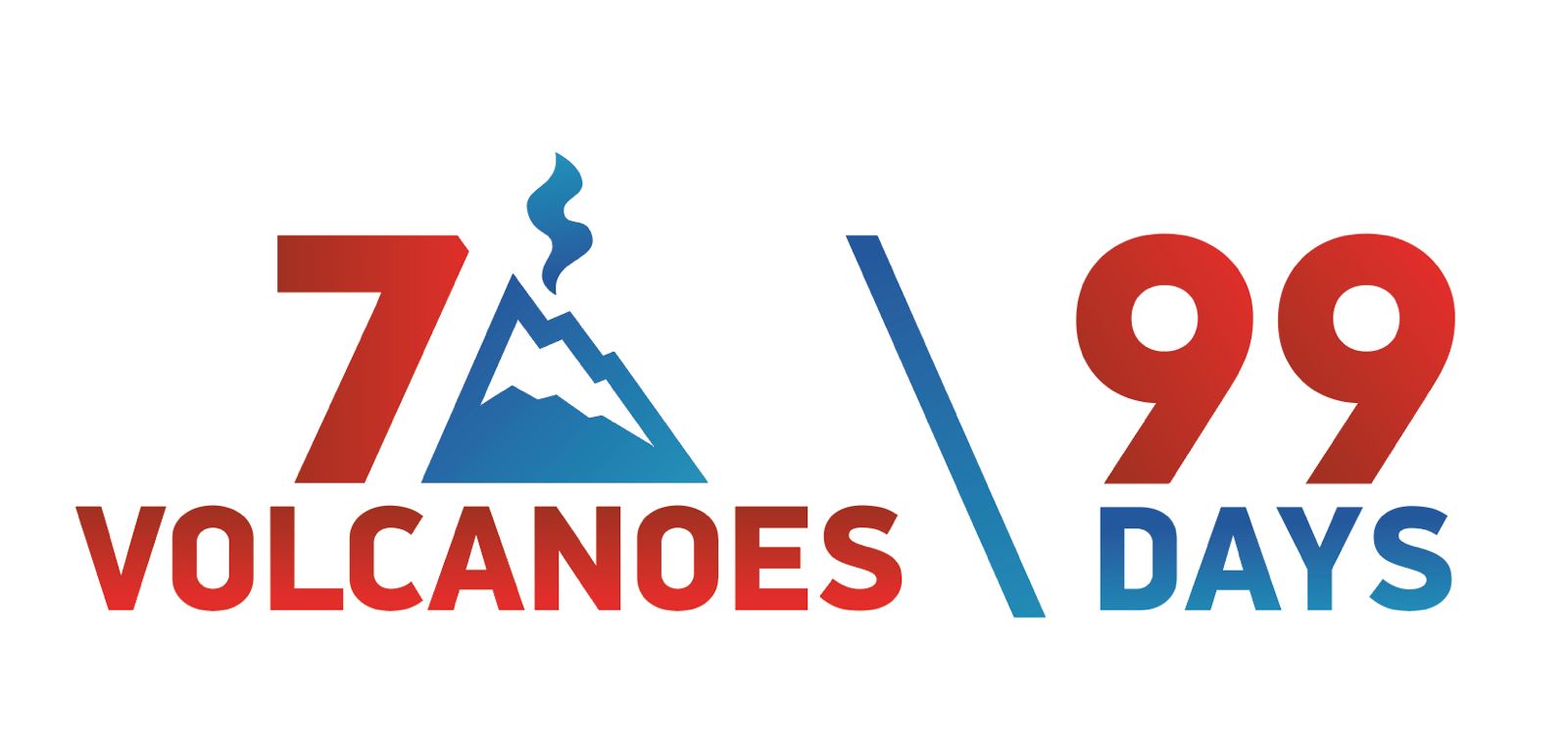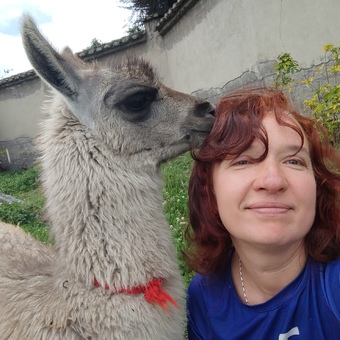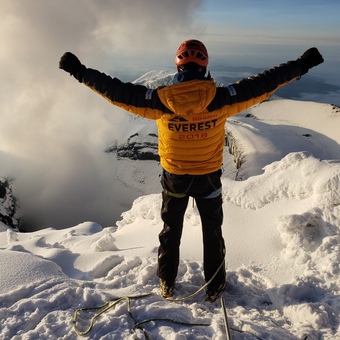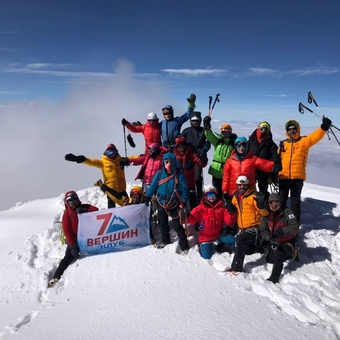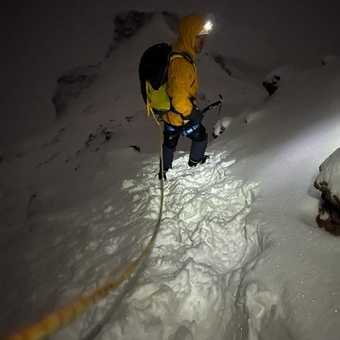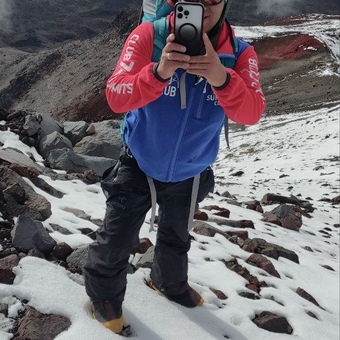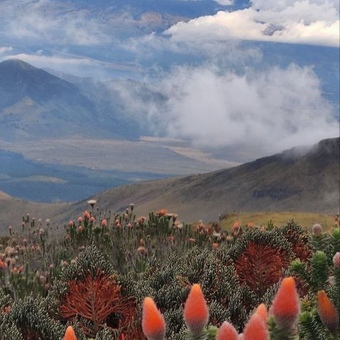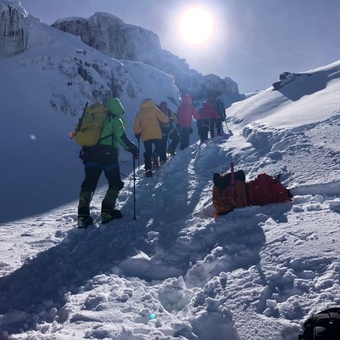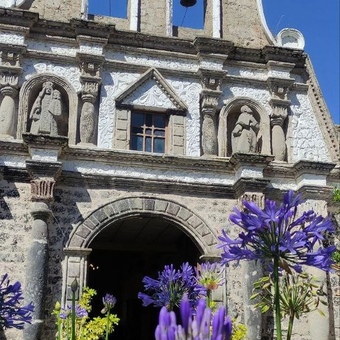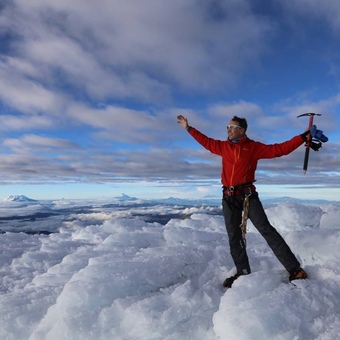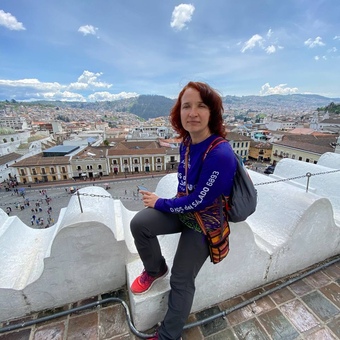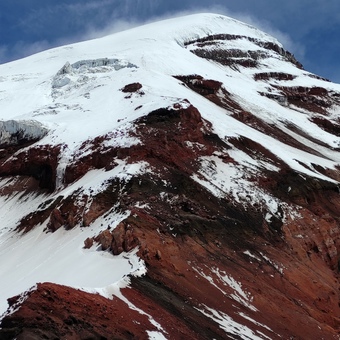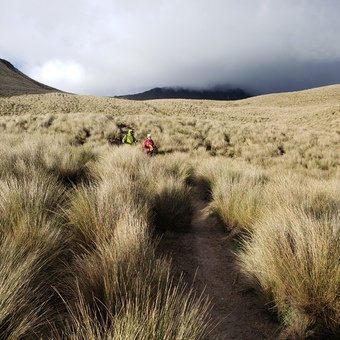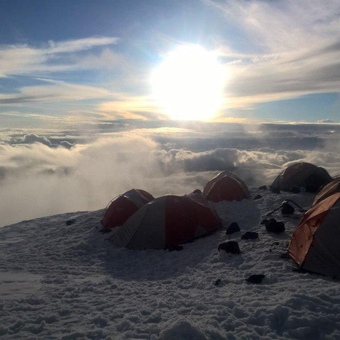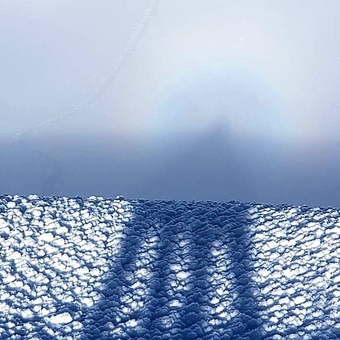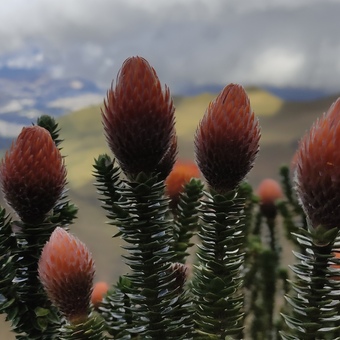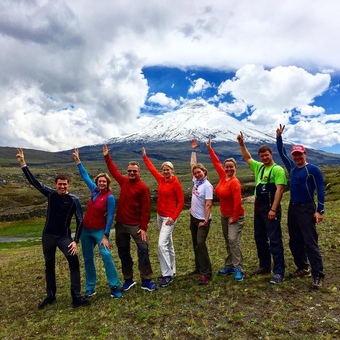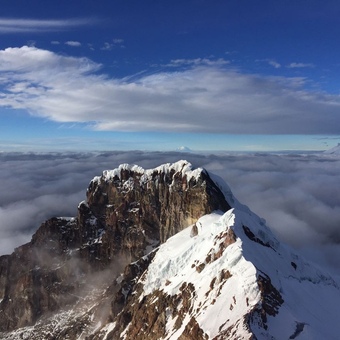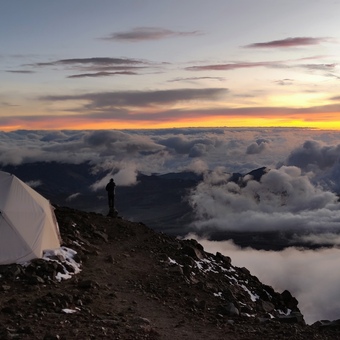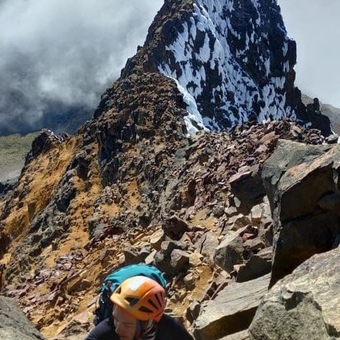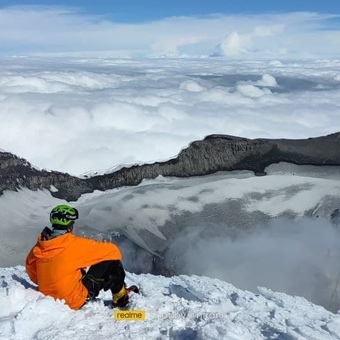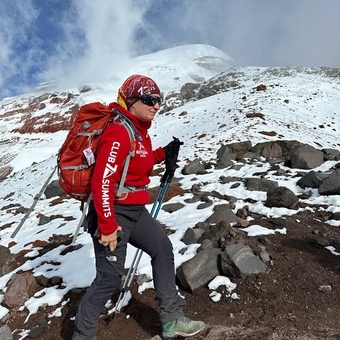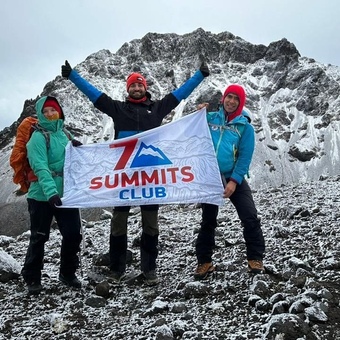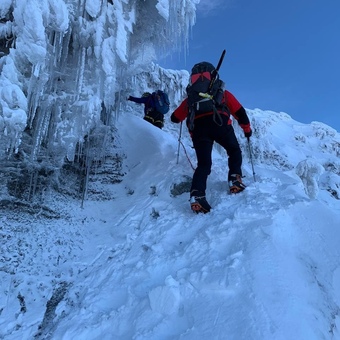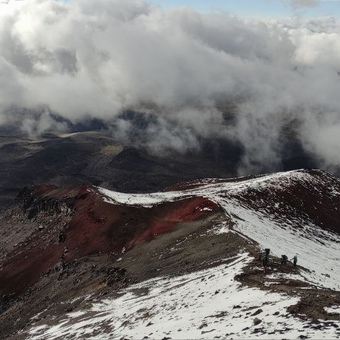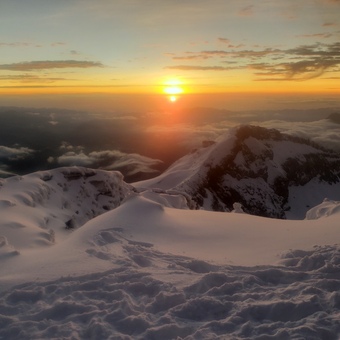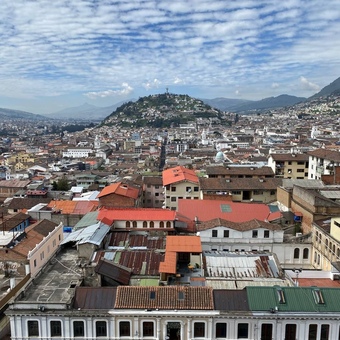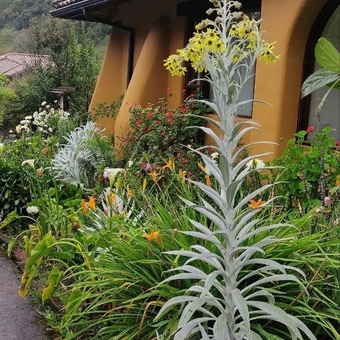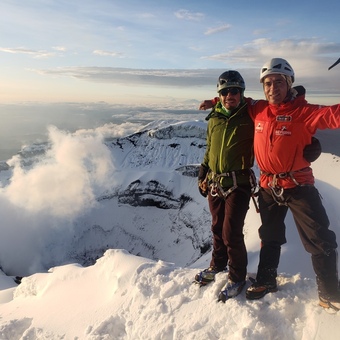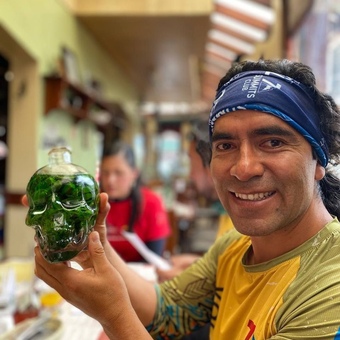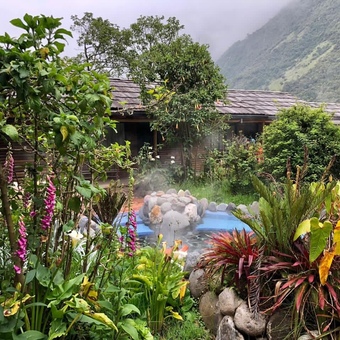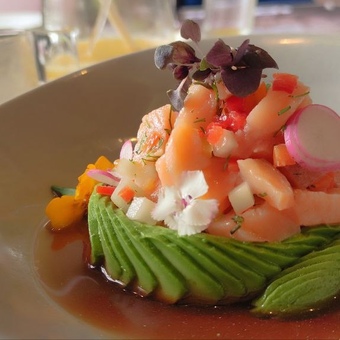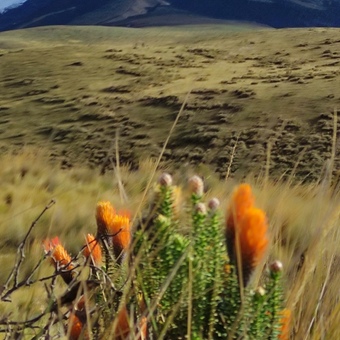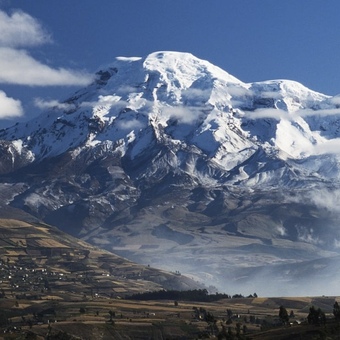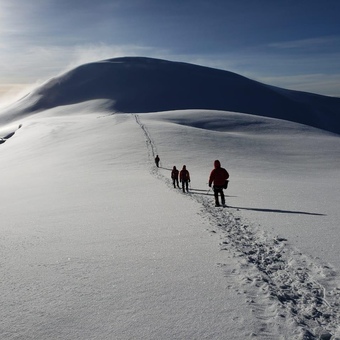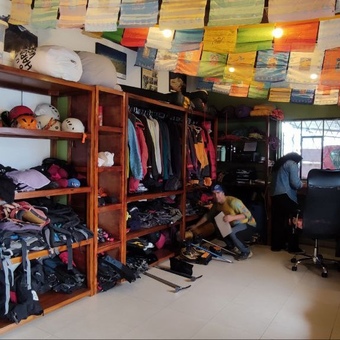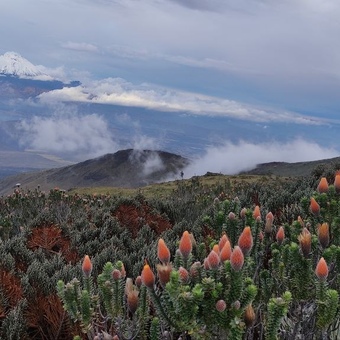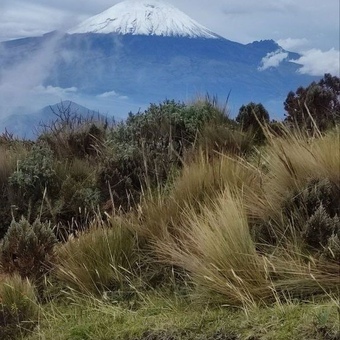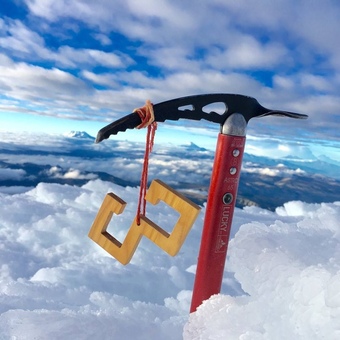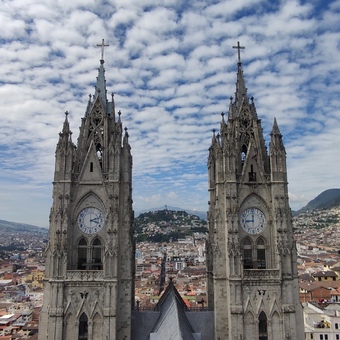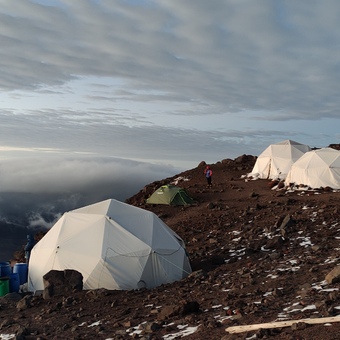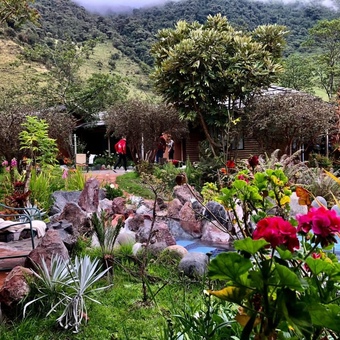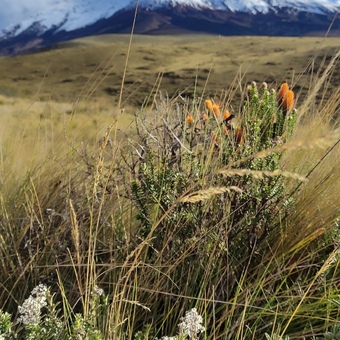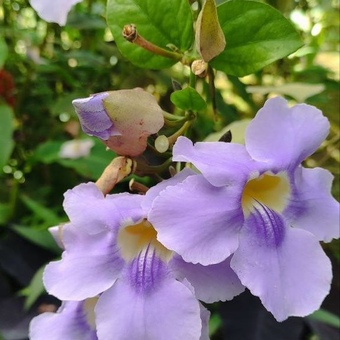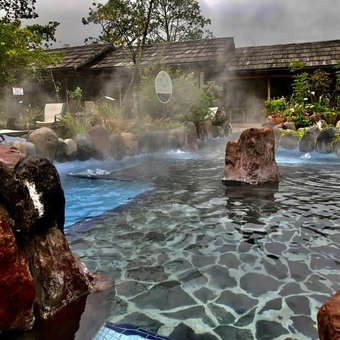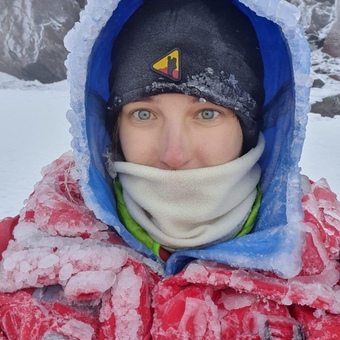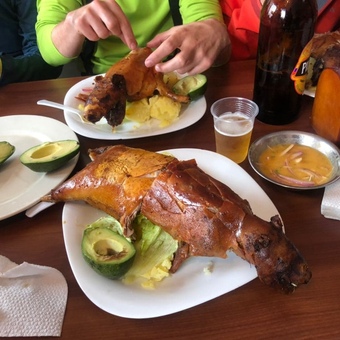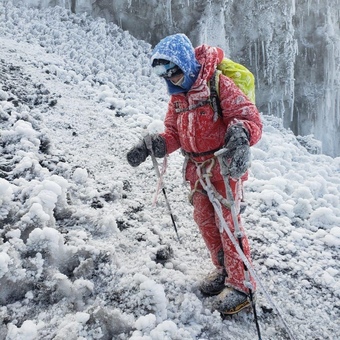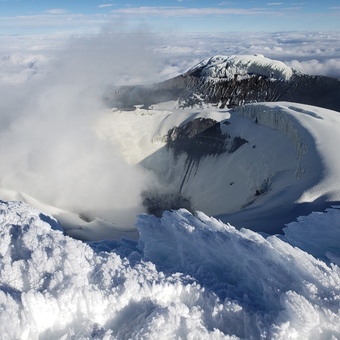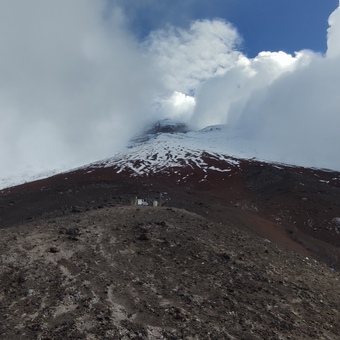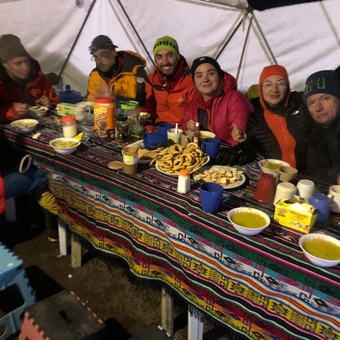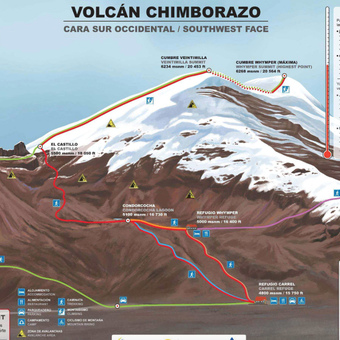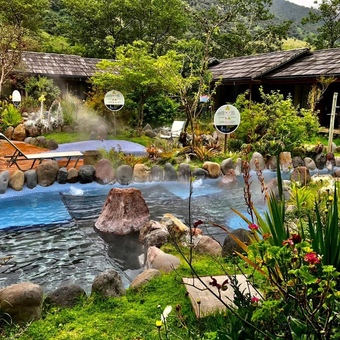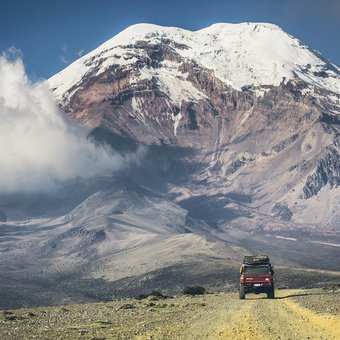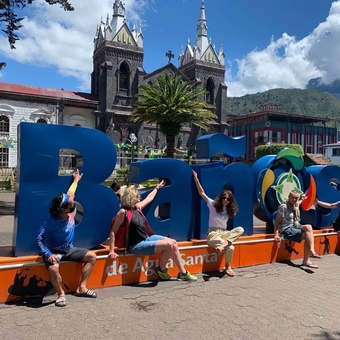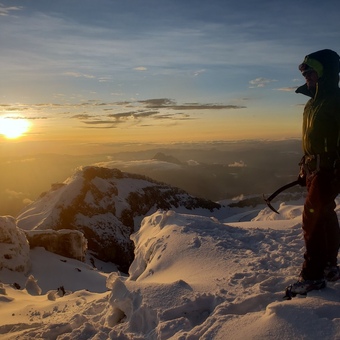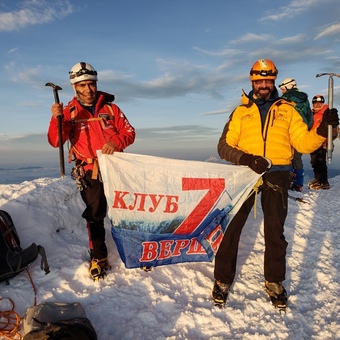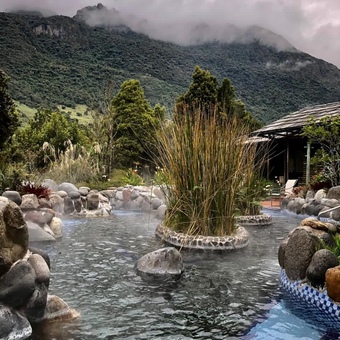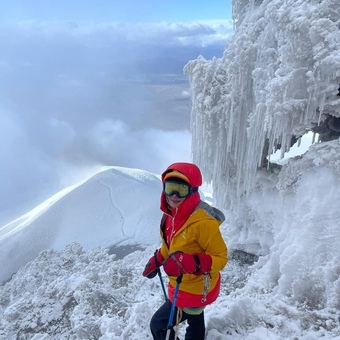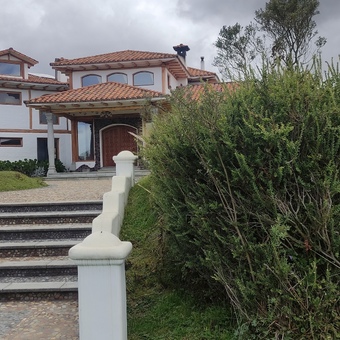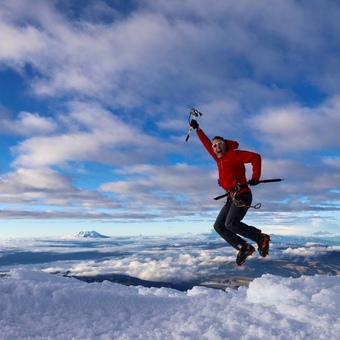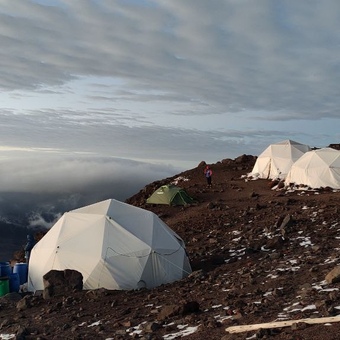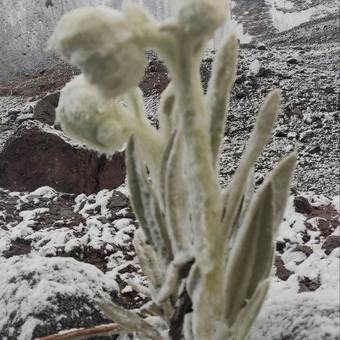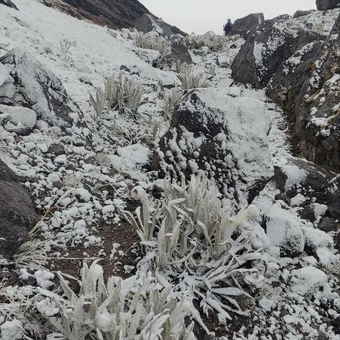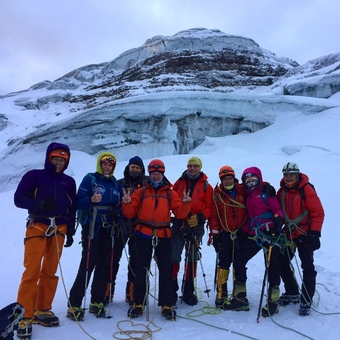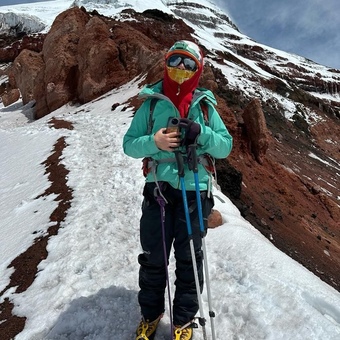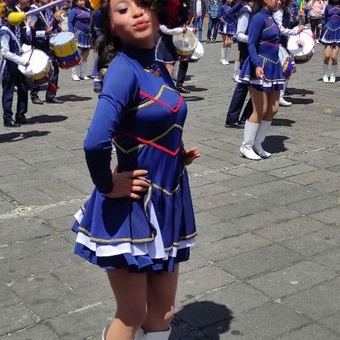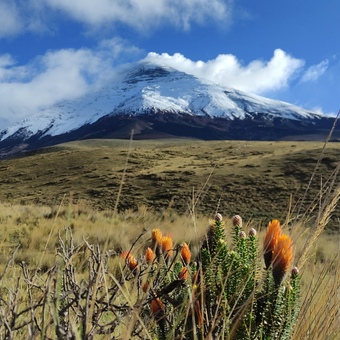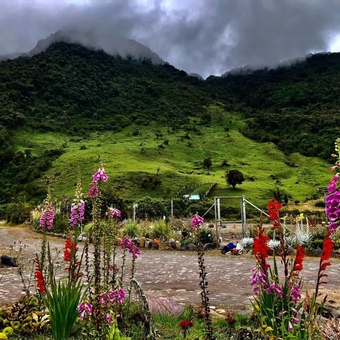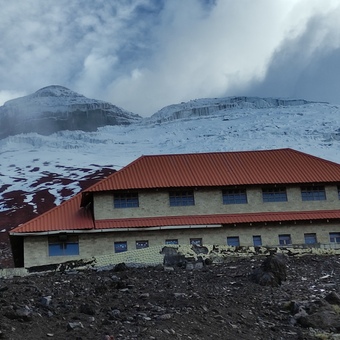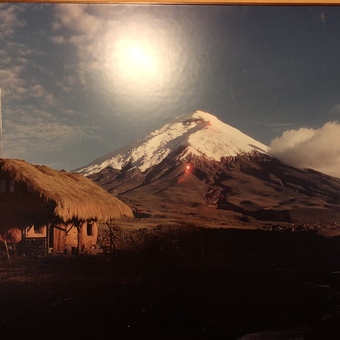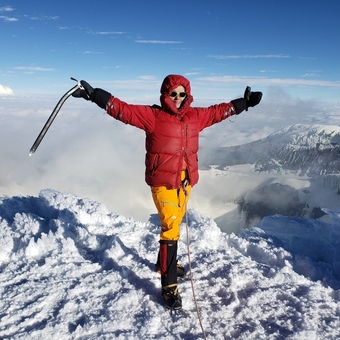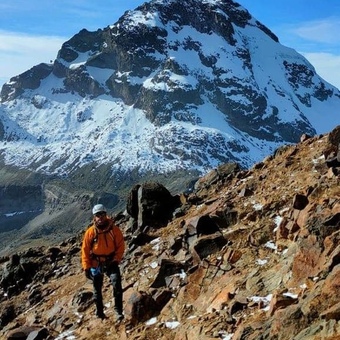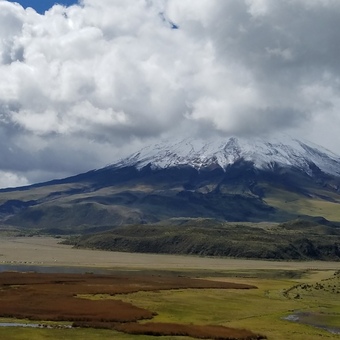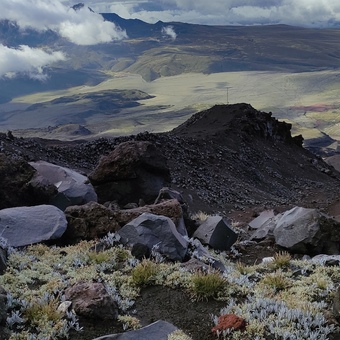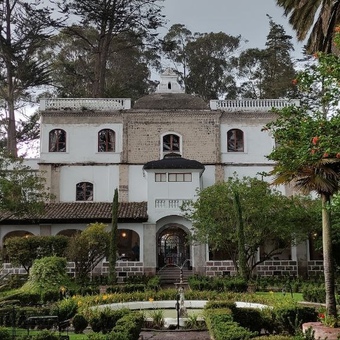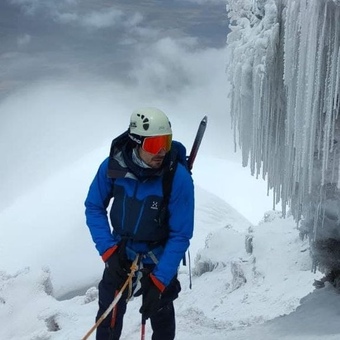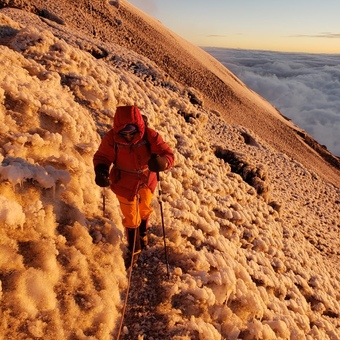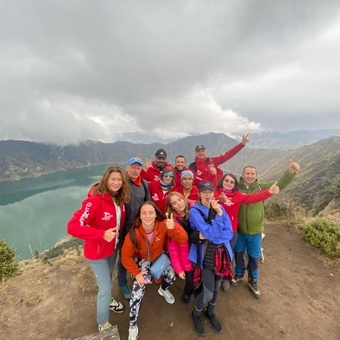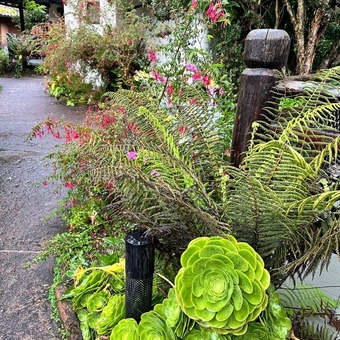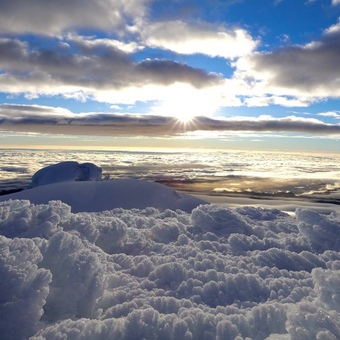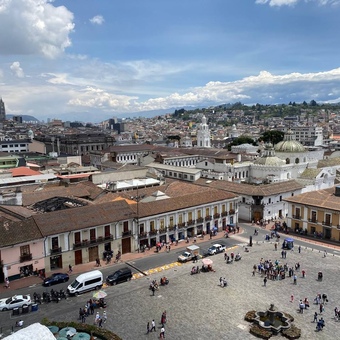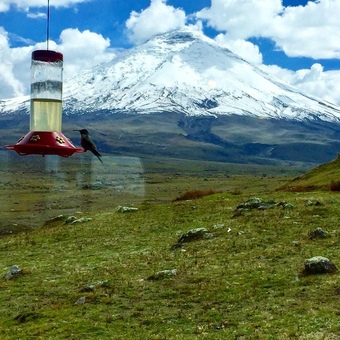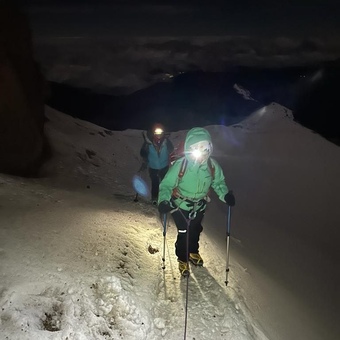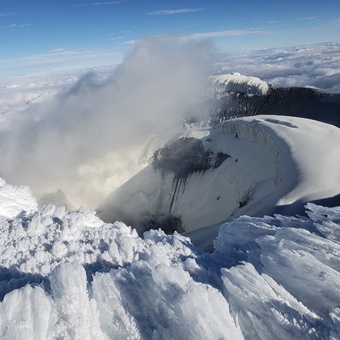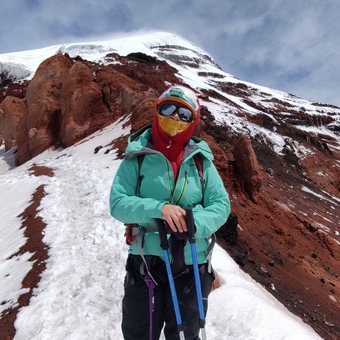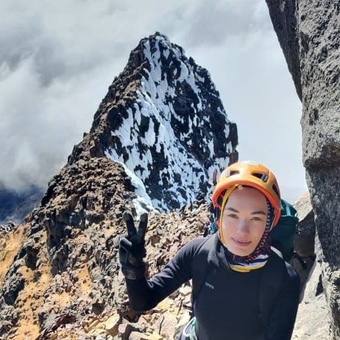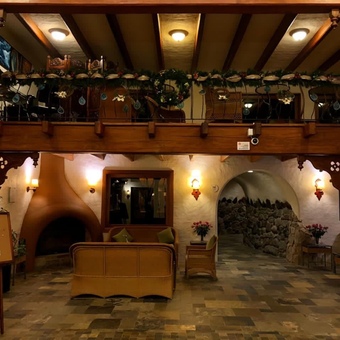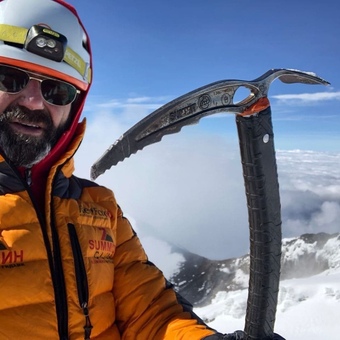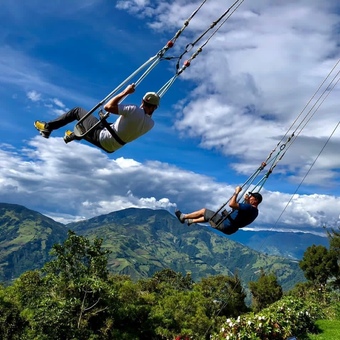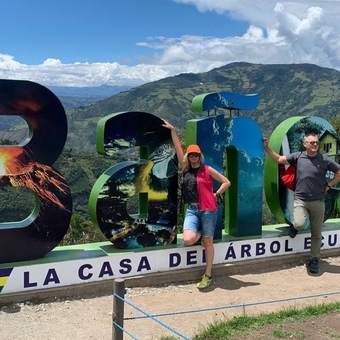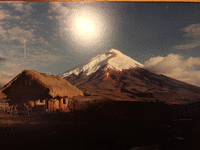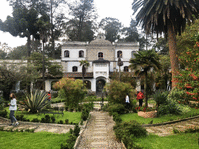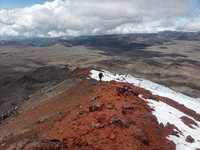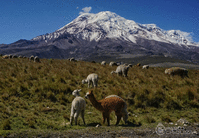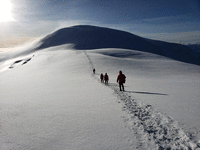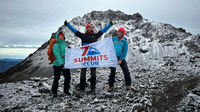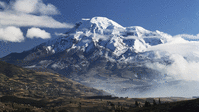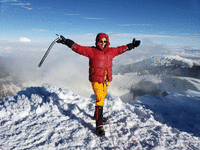Climb the most iconic volcano in Ecuador - Cotopaxi (5,897m) with Super Girls.
Arriving at Quito airport (Ecuador). Airport pick-up and transfer to the hotel. Team orientation and overnight at the hotel.
We meet in the hotel lobby for our first team breakfast. The day is spent exploring colonial Quito with a local tour guide. We’ll visit Independence Square, church of la Compania and the church and monastery of San Francisco. We will also travel to the Equatorial Line where we can jump from the northern to the southern hemisphere and after that we'll go to Mitad del Mundo museum. Later in the day we’ll have a team orientation and a gear check up. A welcome dinner follows in the evening and overnight stay at the hotel.
After breakfast we’ll drive from Quito to the refuge (4500m) from where we’ll start our acclimatization hike (4 hours total). Rucu Pichincha is a perfect start in the acclimatization process and beautiful, with views of Quito and most of the snow covered volcanoes in Ecuador, including Cotopaxi and Cayambe. After the hike and lunch, we will drive to Machachi town (3100m). Overnight stay at Hotel Hacienda Los Mortiños.
After breakfast we’ll visit a traditional Indigenous village known for its local crafts and meet Quichua-speaking indigenous peoples with their daily practices, traditions, and beliefs.
We’ll also take a tour to Quilotoa, the iconic lake within the crater of an extinct volcano (3800m). You can walk along the crater rim or, if you wish, descend down to the lake.
Overnight stay at Hotel Hacienda Los Mortiños.
After breakfast, we’ll drive up to 4500m. Then we’ll hike 1 hour to the José Ribas Refuge (4800m) and then another hour to the Cotopaxi Glacier (5200 m).
We’ll do snow and ice training sessions on the glacier. After descent and drive back to the hotel.
Overnight stay at Hotel Hacienda Los Mortiños (3700 m).
After breakfast, we’ll drive up to 4500m. Then we’ll hike 1 hour to the José Ribas Refuge (4800m) and then another hour to the Cotopaxi Glacier (5200 m).
We’ll do snow and ice training sessions on the glacier. After descent and drive back to the hotel.
Overnight stay at Hotel Hacienda Los Mortiños (3700 m).
After a light breakfast, we will start the climb (7-9 hours) around 1 am. With an early alpine start, we use the first hour to approach the glacier. The route is not challenging technically but is physically demanding. It involves climbing on moderate glaciated slopes (30° – 45°). After approximately six hours of climbing, we reach the top where we can enjoy magnificent views of the gigantic crater and mountains such as Antisana, Cayambe, and Chimborazo. After celebrating the summit, we descend back to the refuge (2-3 hours) where we’ll have a short rest and lunch. After resting we’ll descend to the parking lot (4,500m) and drive to Papallacta Spa Resort (2,5 hours) where you can relax in a hot spring bath. Celebration dinner and overnight in a hotel.
PAYMENT POLICY
A deposit of $1,000 is due at time of registration to reserve a space on the expedition.
A full payment is due 60 days prior to the expedition start date.
CANCELATION POLICY
Refunds will not be issued for cancellations made less than 60 days prior to the scheduled date.
Price includes
- All transportation on scheduled dates
- Meeting at Transfer from and to the Airport (arrival and departure dates)
- All hotel accommodation, double occupancy (breakfast included). Single room available for an additional charge
- Sightseeing arrangements as indicated in the itinerary
- All group equipment
- Park fees
- Climbing permits
- Porters, drivers, local guides, cook, servers
- All meals during the climb: breakfast, lunch, dinners and hot drinks
- Huts accommodation
- 7 Summits Club professional guides
- Certificate and a silver medal for the successful climb
- 7 Summits Club T-shirt, buff and small backpack
- Welcome and Celebration dinners
Price does not include
- Round trip airfare to Ecuador, Quito
- All expenses incurred in the event of early departure (transport, extra hotel nights, evacuation fees, etc)
- Any extensions before or after the specified itinerary (we are happy to help you plan these)
- Charges incurred as a result of delays beyond 7 Summits’ control – including extra hotels if climbers choose to opt out of any climbing portions
- Alcoholic beverages
- Personal gear
- Optional single room accommodation (hotels only)
- Personal expenses
- Required trip insurance policy (for trip cancellation, interruption, rescue & evacuation, medical treatment, repatriation, etc.)
- Tips and gratuities for the guides
Ecuador, Cotopaxi (5897m), Mountaineering
Why go there?
Ecuador, Cotopaxi (5897m), Mountaineering
Cotopaxi volcano in Ecuador is a natural wonder known for its striking beauty, rich history, and status as one of the world's tallest and most active volcanoes.
There is the legend of Cotopaxi volcano: a handsome and fearsome warrior called Cotopaxi fell madly in love with the beautiful Tungurahua. However, the latter was also courted by another valiant warrior, Chimborazo. For decades, these two giants battled for Tungurahua's love.
SUPER GIRLS is more than just a mountaineering project — it’s a movement celebrating the strength, resilience, and camaraderie of women who are redefining what’s possible.
SUPER GIRLS IS:
- Empowering Women in Mountaineering: Super Girls shines a spotlight on women’s achievements in climbing, recognizing those breaking records and redefining limits in mountaineering.
- Women-Only Climbing Expeditions: Bringing together women from all backgrounds and skill levels to embark on transformative climbs, creating an inclusive and supportive environment.
- Building Lasting Friendships: Beyond the mountains, Super Girls is about forging new connections, forming lifelong friendships, and supporting each other on and off the trails.
- Mentorship and Growth: Experienced climbers share their knowledge and passion, guiding others to discover their potential and build confidence in the outdoors.
- Celebrating Diversity and Inclusion: Open to women of all ages, nationalities, and experience levels, Super Girls promotes diversity in mountaineering, encouraging everyone to bring their unique stories to the journey.
- Pushing Physical and Mental Boundaries: Challenging personal limits, achieving new heights, and inspiring each participant to grow through each climb.
- Championing Female Role Models: Featuring stories of women who have made history in mountaineering, Super Girls celebrates role models who inspire future generations.
- Environmental Stewardship: Educating climbers on sustainable practices to protect the mountains and leave a positive impact on the natural world.
Why climb Cotopaxi?
Climbing Cotopaxi offers a thrilling high-altitude adventure at 5,897 meters, with glacier terrain that provides technical challenges while remaining accessible to less experienced climbers. Known as the "Mountain of Light," Cotopaxi boasts stunning sunrise views, unique volcanic landscapes, and beautiful light displays on clear days. Located in Cotopaxi National Park, it also offers glimpses of Andean wildlife and holds deep cultural significance for local communities, making it an unforgettable experience that combines natural beauty, technical skill, and cultural connection.
Why climb with us?
- 7 summits provides the best service and accommodation during the whole trip
- 7 Summits provides comfortable accommodation during the climb, comfortable huts equipped with dormitories and dining areas.
- 7 Summits has the most extensive experience in organizing commercial climbs and challenging high-altitude expeditions
- The highest success rate for summits
- Reliable and trusted local partners
- We offer 5% discounts for your next adventures with us
- We have the most experienced and qualified guides, including world- renowned mountaineers
Tips guidelines (important information!)
You won’t offend your guides by tipping them for their good work.
Please consider leaving the following tips for the Head Guide:
- Minimum – If everything was satisfied, $45 per participant.
- Standard – If you enjoyed the experience, $80 per participant.
- Maximum – If everything was outstanding, $115 per participant.
For other assistant guides and support staff, please feel free to tip at your discretion.
Necessary travel papers (documents)
- Passport with 6 months validity after the return flight.
- 2 digital copy of passport photos
- Medical and evacuation insurance
- Visa
- Climbing permit
Accommodation
Hotel accommodations during the whole expedition
Meals
- All meals while trekking and climbing
- Welcome and celebration dinners
Staff
- Experienced expedition leader from 7 Summits Club
- Guides services, including English speaking guide
- Cook for climbing period
Health and medical insurance
- No special training is required. It is enough to be a physically active person and have trekking or some climbing experience. For training, we recommend prolonged aerobic activities (running, swimming, cycling)
- We provide a full expedition First Aid kit with all necessary medicine, but we also highly recommend that you bring your own specific medicine
- All team members must have personal and medical evacuation insurance
Personal gear
GEAR LIST
Each item on the list below is required unless specified to be optional
If seasonal fluctuations impact the requirement for an item on your list, it will be specified
All other items are required regardless of the forecast to ensure your well-being, as weather and conditions can change quickly in the mountains
TRAVEL ITEMS
- Day Pack 35 - 45 L
This pack will be used as a carryon bag for the trip to Africa and for your personal belongings on the climb.
- Expedition Duffel Bag
An approximately 120-liter expedition-ready duffel bag used to transport all gear. All items need to fit securely into the duffel bag.
- Casual Travel Clothes
We recommend wearing clean clothing while traveling and before and after your trip. It's a good idea to pack a comfortable variety of outfits, including some t-shirts, swimsuits (optional).
TECHNICAL CLOTHING
- Baselayer Bottom
2 pairs of thermal bottoms: one light weight and one medium weight. Fabric: wool, wool blend, synthetic or polyester. No cotton.
- Baselayer Tops
2 thermal long sleeved tops: one light weight and one medium weight. Fabric: wool or synthetic. No cotton.
1 sun hoodie, preferably light colored.
- Trekking Pants
A pair or two of lightweight trekking pants. We also recommend synthetic fabrics.
- Softshell Pants
Non-insulated, stretchy softshell pants that should fit comfortably with or without your baselayer bottoms.
- Hardshell Pants
These must fit over your thermal under layers and softshell pants. These must be non-insulated, lightweight, waterproof and have full zips on the side to get on and off over your climbing boots and crampons.
- Insulated Synthetic Pants
These will be worn around camp and may be useful to climb in on summit day depending on temperature. Fabric: Synthetic or Down. Medium weight is ideal. These should fit over both your thermal under layers and your climbing pants. These must have full zips on the sides to get them on and off over your climbing boots and crampons without taking your boots off.
- Midlayer Top
A midweight, lightweight fleece layer for use over baselayers. Hoods are optional but recommended. Very light down jackets can also suffice as a midlayer.
- Softshell Jacket
This breathable, wind-and-weather resistant jacket is a key part of a mountaineering layering system. A hooded model is highly recommended. This layer must fit well over your midlayer top and baselayer top.
- Hardshell Jacket
A non-insulated, fully waterproof shell jacket with a hood. This layer must fit comfortably over your baselayer, midlayer, softshell, and potentially a lightweight insulated layer. Helmet-compatible hoods are required.
- Lightweight Insulated Jacket
You may use this as a layering piece or as stand-alone insulation when appropriate. Down or synthetic insulation. Down is more packable and lighter weight, and synthetic insulation will retain warmth when wet.
- Down Parka
Expedition style parka should be heavily insulated with high-quality down fill (800-fill or more) and must have an insulated hood. It should fit comfortably over the rest of your upper body layers. Down sweaters or light puffy jackets will not be sufficient.
HANDWEAR
- Lightweight Liner Gloves
Lightweight wool or synthetic liner gloves.
- Softshell Gloves
Midweight, lightly insulated gloves. Leather-palm construction is recommended.
- Insulated Mittens
Waterproof shell mittens with insulating liners. We recommend that your liner gloves can fit inside the mitten system as well.
- Hand Warmers and Foot Warmers (Optional)
HEADWEAR
- Buff Neck Gaiter
- Balaclava
- Sunhat
- Wool or Synthetic Ski Hat
- Sunglasses
These must be high quality UV-blocking lenses.
- Glacier Glasses
These must be the high quality darkest lenses you can buy (Cat 4) and have full coverage around the eyes to block all light.
*Note: If you need prescription Sunglasses contact the manufacturer for options well in advance of your trip.
- Headlamp
A headlamp 200-300 Lumens. Please bring extra batteries.
FOOTWEAR
- Liner Socks
2-3 pairs of liner socks.
- Wool or Synthetic Socks
3 pairs of medium to heavy hiking socks. These must fit over your liner socks if you plan to wear liner socks.
- Gaiters
Waterproof gaiters that must fit snugly over your hiking boots.
- Hiking Boots
Waterproof hiking boots for cool to cold conditions. Modern, lightly insulated boots with room in the toe box and good ankle support.
- Running shoes
Lightweight, comfortable running or walking shoes are recommended for off-mountain use and pre-and-post trip travel. In some situations, these may also serve as approach shoes.
- Double Boots
Double boots designed for mountaineering. Plastic-shelled models are sufficient, but modern non-plastic boots are more comfortable and are highly recommended.
*Note: single boots of any kind (boots without a removable liner) will not be sufficient.
If using a boot with a built-in gaiter, separate gaiters are not necessary.
CLIMBING EQUIPMENT
- Alpine Ice Axe
- 12 Point Crampons
General mountaineering crampons. We recommend modern steel 12-point crampons with anti-balling plates. Note: do not bring 10-point, aluminum, or single-piece rigid crampons, and no vertical-style front points, because they are more aggressive than you need and are dangerous for less technical sections.
- Trekking Poles
These must be lightweight and collapsible to fit in your duffel bag. The “flick lock” style is the most reliable.
- Climbing Helmet
A lightweight climbing-specific helmet. This must fit comfortably over your bare head, hat, and/or balaclava, and your headlamp must be able to strap securely to the outside of the helmet.
- Climbing Harness
Your harness must fit over all of your clothing, feature a belay loop, gear loops, adjustable leg loops and waist belt. We recommend detachable leg loops for expeditions and trips in cold environments, thus allowing you to put the harness on with both feet on the ground while wearing crampons. If you choose a fixed leg loop harness like the Petzl Sitta make sure you practice taking it on and off efficiently before your climb.
- 2 Standard Carabiners
PERSONAL EQUIPMENT
- 0F/ -18C Down Sleeping Bag
Sleeping bag filled with down or synthetic insulation.
- Inflatable Sleeping Pad
- Foam Pad
- Water Bottles
2 one-liter wide-mouth hard-sided water bottles.
Camelback-type hydration systems or soft-sided water bottles are unacceptable. They freeze, pop and break.
- Water Bottle Parkas
2 insulated water bottle parkas that fully cover your water bottle with closing lids.
We recommend the Forty Below Bottle Boot or the Outdoor Research Water Bottle Parka.
- 1 Liter Stainless Steel Thermos
- 0.5 Nalgene Bottle (Optional)
This baby Nalgene bottle is ideal for hot drinks. Because of the size and the leak-proof lid, it allows you to stick the bottle in your pocket or inside your jacket.
- Water purification: Iodine tablets, filter or UV treatment
It is very important to have a way to purify your drinking water up high.
- Pee Bottle
Collapsible or hard-sided 1 liter Nalgene models.
- Pee Funnel For Women
Optional. Practice is needed for the use of this item.
- Sunscreen
Should be with a high zinc content and sweat resistance. This must be 30 SPF or higher.
- Lip Balm with SPF 30+
- Altitude Watch (Optional)
- Small Pocket Size Camera (Optional)
- Solar Panel (Optional); Power Bank
- Medical Kit
Should include: blister kit, low dose aspirin, Band-Aids, wound closure strips, triple antibiotic ointment, basic repair kit, scissors, Diamox (acetazolamide, 125mg) for AMS, nifedipine (for pulmonary edema, time release), dexamethasone (for cerebral edema, 4mg), antacids, NSAIDs such as aspirin or ibuprofen, anti-diarrheal, duct tape, ear plugs, Antibiotics (upper respiratory such as Azithromycin and a gastro-intestinal such as Ciprofloxacin), melatonin, Asthma medication if you use it (Advair), cold and flu medication. Prescription medications in consultation with your doctor.
- Toiletry Bag
Should Include: toilet paper, hand sanitizer, toothbrush, toothpaste, wet wipes, shampoo,
trek towel (compact and quick drying), earplugs and any personal medications or prescriptions. Choose a quantity appropriate for the length of your trip.
- Lightweight poncho or umbrella (optional)
An umbrella is nice to have if it rains to help keep dry. The one with a long handle is better. A rain poncho helps to keep you dry while staying cooler, as wearing your shell layers can be very warm on the first few days of the climb.
- Snacks
We recommend assortments of hard candies; chocolate; dried fruits; special athletic foods such as energy gels (Gu); electrolytes (Nuun); Clif Shot Bloks; energy bars; protein bars; trail mix nuts.
- We have the biggest record of orginizing many commertial technical and altitude expeditions.
- Our guides are highly experience with guide work on many serious climbs all over the world.
- We offer the best accommodation and food conditions. Your personal needs any special kinds of food will be considered.
- You can contact your personal advisor in the gear issue for free consultation. Plus free delivery of your personal rented gear to base camp.
- We offer the scheme of discounts for loyal clients.
